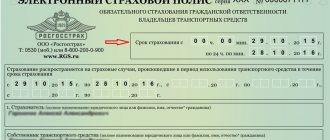It is important to know!
- a person is subject to administrative liability for violating the destruction or damage of someone else's property only if his guilt is established | Art. 1.5 Code of Administrative Offenses of the Russian Federation;
- when applying administrative coercive measures, decisions and actions (inactions) that degrade human dignity are not allowed | Art. 1.6 Code of Administrative Offenses of the Russian Federation;
- a person who has committed an administrative offense is subject to liability on the basis of the law in force at the time the administrative offense was committed | Art. 1.7 Code of Administrative Offenses of the Russian Federation;
- a law that mitigates or abolishes administrative liability or otherwise improves the position of a person who has committed an administrative offense has retroactive effect | Art. 1.7 Code of Administrative Offenses of the Russian Federation;
- a law establishing or aggravating administrative liability for an administrative offense or otherwise worsening a person’s position does not have retroactive effect | Art. 1.7 Code of Administrative Offenses of the Russian Federation;
- a legal entity is found guilty of committing an administrative offense if it is established that it had the opportunity to comply with the rules and regulations, for violation of which this Code or the laws of a constituent entity of the Russian Federation provides for administrative liability, but this person did not take all measures depending on it their compliance | Art. 2.1 Code of Administrative Offenses of the Russian Federation.
Brief Definition
Damage is the loss of the original qualities of an object as a result of exposure to external factors.
Property is defined as a set of objects that have material value and are owned by an individual/legal entity, municipality or state.
Thus, the answer to the question of what property damage is may be:
- damage – when a material object partially loses its operational characteristics and cannot be used for its intended purpose;
- destruction – when further use of a thing becomes impossible.
The definition of property damage includes both intentional and unintentional damage.
We recommend reading: “Application to a district police officer against unlucky neighbors: pitfalls, writing samples.”
Exclusion of liability for violation of advertising laws
Insanity
You can almost always return an item! The main thing is to know the procedure and use the law correctly. Get information for free from lawyers via chat (bottom right ↘️)
An individual who was in a state of insanity at the time of the commission of the offense is not subject to administrative liability | Art. 2.8 Code of Administrative Offenses of the Russian Federation:
- that is, he could not realize the actual nature and illegality of his actions (inaction) or direct them;
- due to a chronic mental disorder, temporary mental disorder, dementia or other morbid mental condition.
Urgent necessity
It is not an administrative offense for a person to cause harm to legally protected interests | Art. 2.8 Code of Administrative Offenses of the Russian Federation:
- to eliminate a danger that directly threatens the personality and rights of a given person or other persons, as well as the legally protected interests of society or the state, if this danger could not be eliminated by other means and if the harm caused is less significant than the harm prevented.
Insignificance
Also, a person may be released from administrative liability and limit himself to an oral remark if the act is insignificant | Art. 2.9 Code of Administrative Offenses of the Russian Federation. The following have the right to release:
- judge;
- organ;
- official authorized to resolve a case of an administrative offense.
what is insignificance
The insignificance of the offense occurs in the absence of a significant threat to protected social relations | Art. 2.9 Code of Administrative Offenses of the Russian Federation. A minor administrative offense is an action or inaction, although formally containing the elements of an administrative offense, but taking into account the nature of the offense committed and the role of the offender, the amount of harm and the severity of the consequences, which does not represent a significant violation of protected public legal relations. It must be borne in mind that, taking into account the signs of the objective side of some administrative offenses, under no circumstances can they be considered insignificant, since they significantly violate protected social relations. These include, in particular, the following administrative offenses:
- driving a vehicle while intoxicated | Art. 12.8 Code of Administrative Offenses of the Russian Federation;
- refusal to undergo a medical examination | Art. 12.26 Code of Administrative Offenses of the Russian Federation.
The following circumstances do not matter:
- personality;
- property status;
- voluntary elimination of consequences;
- compensation for damage caused.
AZ-libr.ru
Article 7.17. Destruction or damage to someone else's propertyIntentional destruction or damage to someone else's property, if these actions did not cause significant damage,
- entails the imposition of an administrative fine in the amount of three to five times the minimum wage.
Comm. Chernikov V.V.
An offense encroaches on the relationship of safety of property objects in the form of property. Owners own and dispose of property at their own discretion (Article 209 of the Civil Code of the Russian Federation).
Subject of the offense
There can be any property of material (economic) value, both movable and immovable. The main thing is that it should be someone else’s, the culprit should not have the authority to dispose of it (see commentary to Article 7.27 of the Code of Administrative Offenses of the Russian Federation).
Cases of destruction or damage to someone else's property, for which administrative liability is established by special rules (for example, damage to property on vehicles - Article 11.15 of the Code of Administrative Offenses of the Russian Federation), are not the subject of the offense under consideration.
The objective side of the offense
express two alternative elements - destruction or damage to someone else's property. Destruction of property means that as a result of external influences, material assets are brought to a state where they either cease to exist physically or completely lose their economic value and useful properties. When property is damaged, its condition deteriorates, it loses a certain part of its useful properties, as a result of which it becomes qualitatively unsuitable for economic use. These properties of a thing, in contrast to destruction, can be restored through repair, restoration, etc.
The elements of the offense are material.
A mandatory sign of its objective side is the infliction of minor damage. Otherwise, criminal liability arises under the relevant articles of the Criminal Code of the Russian Federation.
The significance of the damage (in accordance with the resolution of the Plenum of the Supreme Court of the Russian Federation dated June 5, 2002 No. 14 “On judicial practice in cases of violation of fire safety rules, destruction or damage to property by arson or as a result of careless handling of fire”) is assessed in each specific case based on the value of the destroyed or damaged property, the amount of losses incurred by the victim as a result of the restoration of the damaged property, the significance of this property for the victim, for example, on the type of his activity and financial situation or the financial and economic condition of the legal entity that was the owner or other possessor of the destroyed or damaged property.
Thus, in case No. 6-12, considered by the magistrate of the Maslyaninsky district of the Novosibirsk region, the destruction by Mr. I. of a telephone set belonging to CJSC “Brick Plant”, worth 400 rubles. was qualified under Article 7.17 of the Code of Administrative Offenses of the Russian Federation. The judge stated that the damage to the enterprise in this case was not significant.
The Commission for the Affairs of Minors and the Protection of Their Rights under the administration of the Kalininsky District of Novosibirsk recognized the destruction of fire-technical equipment worth 1,000 rubles, which was committed by a vocational school student U.
Methods of damage and destruction of property are associated with active external influence on it. However, it should be borne in mind that if destruction or damage to property is carried out using sources of increased danger (explosion, arson, using vehicles, etc.), then criminal liability may arise under Articles 205, 214, 260, etc. of the Criminal Code RF.
Likewise, criminal liability arises for the destruction or damage of historical and cultural monuments (Article 243 of the Criminal Code of the Russian Federation).
The subject of this offense
is an individual who has reached 16 years of age.
The subjective side of the offense
characterized by intent. The motives and purposes of the offense do not affect qualifications.
Cases involving these administrative offenses are heard by judges.
Officials of internal affairs bodies are authorized to draw up protocols on violations.
What mitigates responsibility?
A judge, body, or official considering a case when imposing a fine for a violation of destruction or damage to someone else's property may recognize the following circumstances as mitigating | Art. 4.2 Code of Administrative Offenses of the Russian Federation:
- repentance of the person who committed the administrative offense;
- voluntary cessation of unlawful behavior;
- voluntary reporting of an administrative offense committed;
- providing assistance to the body authorized to carry out proceedings in a case of an administrative offense in establishing the circumstances to be established in a case of an administrative offense;
- preventing harmful consequences of an administrative offense;
- voluntary compensation for damage caused or voluntary elimination of harm caused;
- voluntary execution, before a decision is made in a case of an administrative offense, of an order to eliminate the violation;
- committing an administrative offense in a state of strong emotional excitement (affect) or due to a combination of difficult personal or family circumstances;
- commission of an administrative offense by a minor;
- commission of an administrative offense by a pregnant woman or a woman with a young child;
- A judge, body, or official considering a case of an administrative offense may recognize other circumstances as mitigating.
Intentional damage to someone else's property - article of the Criminal Code of the Russian Federation
Criminal liability for damage to someone else's property is imposed under Art. 167 of the Criminal Code of the Russian Federation. Criminal liability differs from administrative liability in the amount of damage caused (which is determined by the value of the damaged or destroyed item). The damage cannot be less than 5,000 rubles, otherwise it is not a criminal offense.
The punishment under a criminal article is much stricter. The following may be applied to the culprit at the discretion of the court:
- Fine up to 40,000 rubles.
- Fine in the amount of wages (one, two, or three).
- Mandatory work, the duration of which cannot exceed 360 hours.
- Correctional labor for up to a year.
- Imprisonment for up to 2 years.
What aggravates responsibility
A judge, body, or official imposing an administrative penalty, depending on the nature of the administrative offense committed, may recognize the following circumstances as aggravating | Art. 4.3 Code of Administrative Offenses of the Russian Federation:
- continuation of illegal behavior despite the demand of authorized persons to stop it;
- repeated commission of a similar administrative offense;
- involvement of a minor in committing an administrative offense;
- commission of an administrative offense by a group of persons;
- committing an administrative offense during a natural disaster or other emergency circumstances;
- committing an administrative offense while intoxicated or refusing to undergo a medical examination for intoxication if there are sufficient grounds to believe that the person who committed the administrative offense is in a state of intoxication.
Classification of illegal acts
In the paragraphs of the Criminal Code, liability is determined by the characteristics of the crimes. The legislator considered the subjective attribute to be an important element influencing whether an offense belongs to a particular class:
- intentionality;
- carelessness.
Hint: the issue of ownership matters in classification.
Deliberate misconduct
This is dealt with in paragraph 158 of the Criminal Code. The subjective feature of an offense is the intentionality of its implementation. That is, the criminal commits a crime against someone else’s property, realizing the illegality of it. He is aware in advance of the following facts:
- the object has an owner;
- damaging it is an offence.
Hint: persons from the age of 14 are subject to punishment.
Carelessness
Often, people render other people's property completely or partially unusable due to negligence. Such an offense falls under paragraph 168 of the Criminal Code. Moreover, its text contains restrictions related to the calculation of damage.
Attention: the attacker is subject to punishment if the owner has suffered major damage. This is determined in the amount of 250 thousand rubles.
A characteristic feature of a crime is its unintentionality. That is, the suspect did not intend to damage someone else’s property. For example, a person decided to demolish a house on his own property. During the work, the wall of the building fell on a neighboring structure and destroyed it. The citizen had no intentions to destroy someone else's house. But he still cannot avoid responsibility.
Damage to a privately owned property
All of the above fully applies to personal property. The offender is punished under one of the specified articles. It is determined by the court after an investigation. During the proceedings it is established:
- presence of intent;
- the amount of damage suffered by the owner.
Important: the minimum threshold of damage for an intentional act is 5,000.0 rubles, and in case of negligence it is set at 250,000.0 rubles.
State property
When considering crimes against objects owned by the state or municipalities, another group is distinguished: vandalism. This is an act against public morality. For example, obscene inscriptions in public places. Vandalism is classified according to the amount of damage:
- A minor breakdown that needs to be repaired leads to arrest for three months.
- Destruction of state property is punished more severely. Such an offense is punishable by imprisonment for up to three years. Moreover, aggravating factors include committing: by a group;
- for ideological reasons;
- out of racial or religious hatred.
Hint: other criminal acts against state property are dealt with within the framework of paragraphs 158 and 157 of the Criminal Code.
Civil regulation
Regardless of whether the actions of the guilty person contain signs of an administrative or criminal offense, the issue of claiming the amount of damage caused is additionally considered. Compensation for losses occurs through civil proceedings. In Art. 304 of the Civil Code of the Russian Federation states that the owner of property (individual, organization, municipality, state) has the right to compensation for damage in court. Art. 1084 of the designated code fixes the need to pay monetary compensation to persons who suffered from illegal actions that resulted in harm to health. The procedure for claiming funds is described in the provisions of the Civil Procedure Code.
What should the victim do?
The owner of the damaged goods must take the following actions:
- Assess the amount of damage.
- Write a statement to the police. The document indicates: the addressee in the format: exact name of the department;
- Full name and title of the boss;
- Full name;
- suspects;
Hint: if the police did not involve an expert to assess the damage, then the victim pays for his services.
The amount should be included in the amount of damage. Video on property damage
Similar articles
- Property crimes
- Responsibility for beatings
- Compulsion to testify
- Crimes against constitutional rights and freedoms








